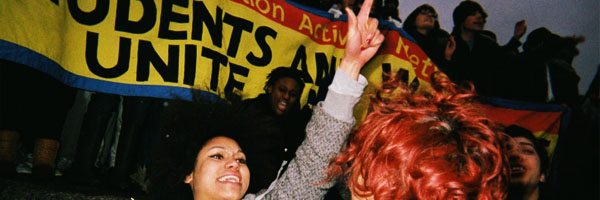Participation and Accountability: Why the NUS needs reform
Recently, the National Union of Students held its annual conference, a gathering of the delegates from all member universities across the country to debate and vote on issues along with electing members to the various executive officer posts and education committee positions.
Usually, NUS conferences follow this standard pattern and aside from a few controversial motions that have cropped up over recent years, regarding internal NUS reform, UKIP and education policy, the conferences largely go smoothly and without much discontent.
owever, at this particular conference, the elections process was thrown into disarray and controversy when two of the positions to the Block of 15, a group of five further education and ten higher education students elected onto the NUS Executive Council were the subject of investigation after it was revealed two successful candidates for the five further education positions had dubious eligibility. For clarification, to be eligible for election to a higher education position, the candidate would need to be studying for an undergraduate or graduate degree or serving as a sabbatical officer at a higher education institution. A further education candidate would be someone studying for a course beyond secondary education that is not university based, such as a HND (Higher National Diploma), a technical qualification or a general qualification.
Ultimately, the NUS have a primary function to represent and serve the interests of students and when blatant abuse of their highest elections system is allowed to happen, it undermines confidence and faith in the union itself.
Two of the successful further education candidates were met with scrutiny and questioning after their elections, specifically concerning their eligibility. Daniel Cooper, a sabbatical officer in the soon to be defunct ULU was questioned after his election to one of the five positions. While members of Cooper’s university students union said he was eligible for election, he was in fact shown to be a sabbatical officer in a higher education union and only later did it emerge Cooper had recently signed up to a short further education course. Many criticised Cooper for opportunism and cynicism, including NUS President Toni Pearce, stating that he had signed up to a short further education course, as there was a better chance of being elected to that position than a higher education slot. Similarly, Aaron Kiely, the NUS’ Black Students Officer was also elected to a further education position despite not graduating from a FE institution and was deemed to be running based on his previous position as Black Students Officer. As a result of both these dubious eligibility claims, numerous NUS delegates have called for a re-run of the election and for Cooper and Kiely to be removed from their new roles.
Ultimately, the NUS have a primary function to represent and serve the interests of students and when blatant abuse of their highest elections system is allowed to happen, it undermines confidence and faith in the union itself. While it is right for senior officials such as Toni Pearce to state that Cooper and Kiely shouldn’t have been elected, the NUS has not tackled a vital problem, participation. It is widely known that very few students on campuses across the country actively participate in student politics and that most sabbatical officers and NUS delegates tend to be elected with ten percent or less of the student body voting in elections.
The NUS has not taken major action to solve this problem and while it is right that students cannot be forced to participate, it should also be the case that the NUS should be actively engaging in a campaign to get more students involved in their policy making processes and in student politics. Right now, very few students are actively aware of what goes on at NUS conferences or even in their own student unions, with a recent poll showing nearly 40 percent of students unaware of what their students union or the NUS does beyond discount cards. Such an unaccountable and undemocratic principle cannot continue and the NUS must urgently address the chronic lack of participation, because when students are collectively paying £50,000 pounds a year for membership of the NUS, they should be kept well informed and urged to take part in the institution.
Aside from participation, the NUS also must work on accountability to its members. When instances such as the Block of 15 elections controversy are allowed to happen along with increasing centralization of power within the organisation, the NUS is losing accountability and must reform to ensure that future motions and policy comes from democratically managed motions with the legitimacy of student votes behind it. For as long as the NUS functions with a bureaucratic, rigid structure that is often far removed from the attentions of the average student, it cannot be held accountable. Rather, the NUS needs to become a more open organisation where the policies and motions it enacts are widely voted on by students across the country and the actions of its committees and officers are more widely publicized. Such measures can only serve to benefit the NUS as it is far more likely to be a successful organisation when it is more open and more accountable.
[divider]
Photo: flickr/alaanphotos

Comments